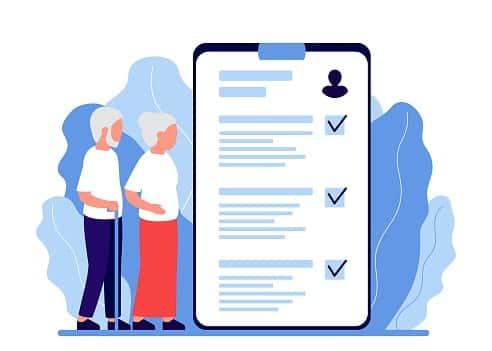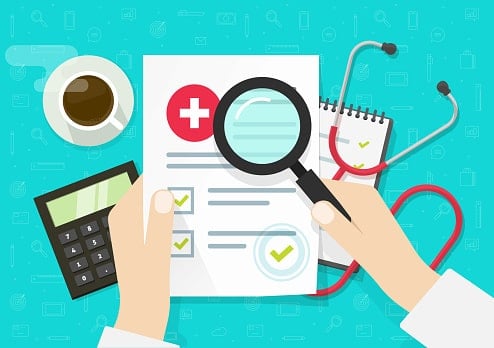what to do if insurance denies medication?
If you’re not sure what to do when insurance denies coverage for medication, you’re not alone. Fortunately, you have options. The following steps can help you learn more about why coverage was denied and what you can do in such situations.
Ask why the drug was denied
Why are some medications not covered by insurance? The reasons can be complex, so you might have to dig to get the right answer.
Start by asking your pharmacist questions about the denial. Call your insurer to find out why the coverage was denied, says Brian Colburn, senior vice president of corporate development and strategy at Alegeus, which helps employers with their consumer-directed health care solutions.
"Understand why it's not covered," he says. "Sometimes, there are mistakes."
Also, sometimes it's just a paperwork issue. Insurers often require prior authorization before approving coverage for more expensive medications. Prior authorization requires your doctor to fill out a form explaining why you need that medication.
The drug may be covered with a letter of medical necessity from your doctor, says Colburn.
Make your case to your employer or insurer
You also can ask your insurer for an exception if the drug gets dropped from coverage.
"This process requires a supporting statement from your doctor explaining that your drug is medically necessary and that any alternatives would have an adverse effect,” says Marsh.
If that doesn't work, you can file an appeal.
"The exact process will depend on your insurer, but it often requires that you work with your doctor to submit an application or letter of appeal," she says.
If the appeal is denied, you can file for an independent review through your state's insurance regulator, which can take two months to process.
Many large employers self-fund their insurance plans, even though an insurance company administers them. In this case, you can contact your company's human resources department and ask if they'll cover the drug.
When Colburn worked for a previous employer a few years ago, his daughter (who has type 1 diabetes) needed a medication that wasn't covered by his employer's plan. He went to the HR department and explained why she needed the medication, and they ended up covering it.
"Not every employer is going to be like that, and it depends on the medication and whether you feel comfortable talking with them," says Colburn.
Research patient assistance programs and discounts
Many drug manufacturers offer assistance for people based on need -- if there’s no substitute for an on-patent brand name drug that you can’t afford.
You can search for manufacturers' patient assistance programs by looking up your drug. Or you may find resources to help with drug costs at the pharmaceutical company's website.
"Copay card and patient assistance programs are available through pharmaceutical companies to help people that are struggling to afford their medications and can reduce out-of-pocket costs to as little as $0 per month," says Marsh. "Patient assistance programs generally serve the uninsured, while manufacturer copay cards are for those with insurance."
GoodRx has a database of copay cards for more than 700 medications. To find one, search the name of the drug on GoodRx.com and scroll down to see if there is a copay card for your drug under the "ways to save” section.
Several charitable foundations have programs that can also help, which you can find through the Patient Access Network (PAN) Foundation. You can search for help from state and local pharmaceutical assistance and other programs at the National Council on Aging's BenefitsCheckup.org.
Ask your doctor if there’s an alternative medication
Each insurance plan has its own rules about which drugs it covers and how you can save the most money when purchasing prescription drugs.
For example, a health plan may prefer a different brand or a generic to treat your condition.
"Typically, other alternative medications may be covered by your plan," says Marsh. "You should always consider talking to your doctor about trying a different medication."
Doctors usually don't know which medicines are covered under your plan's formulary, so it's up to you to ask about other options, says Marsh.
"If you notice that one of your medications has been dropped from coverage or has gotten more expensive, ask your doctor about alternative medications that may be more affordable."
Find resources through an advocacy organization for your disease
Many people with a similar condition may have the same trouble getting coverage for their medications. Organizations focusing on the disease often have great resources to help you find assistance.
For example, the American Diabetes Association has a resource page for information about getting help paying for insulin and diabetes medications from several manufacturers. The Arthritis Foundation has a list of consumer assistance programs to help with medical and drug costs.
Having your medication declined is becoming more common. The steps above can help you to get your medication covered or to find a way to make it more affordable.
Health insurance finder tool

COBRA
Learn more about COBRA
How much is your annual household income?
How many members are in your household?
Medicare
Medicare costs vary depending on which option you choose.
Learn more about Medicare costs.
Medicaid

Parent's employer-sponsored health insurance

Spouse's employer-sponsored health insurance

Employer-sponsored health insurance

Preferred-provider Organization (PPOs)
Preferred-provider organization (PPOs) plans are the most common type of
employer-based health plan. PPOs have higher premiums than HMOs and HDHPs, but
those added costs offer you flexibility. A PPO allows you to get care anywhere
and without primary care provider referrals. You may have to pay more to get
out-of-network care, but a PPO will pick up a portion of the costs.
Find out more about the differences between plansHealth maintenance organization (HMO)
Health maintenance organization (HMO) plans have lower premiums than PPOs.
However, HMOs have more restrictions. HMOs don't allow you to get care outside
of your provider network. If you get out-of-network care, you'll likely have to
pay for all of it. HMOs also require you to get primary care provider referrals
to see specialists.
Find out more about the differences between plansHigh-deductible health plans (HDHPs)
High-deductible health plans (HDHPs) have become more common as employers look
to reduce their health costs. HDHPs have lower premiums than PPOs and HMOs, but
much higher deductibles. A deductible is what you have to pay for health care
services before your health plan chips in money. Once you reach your deductible,
the health plan pays a portion and you pay your share, which is called
coinsurance.
Find out more about the differences between plansExclusive provider organization (EPO)
Exclusive provider organization (EPO) plans offer the flexibility of a PPO with
the restricted network found in an HMO. EPOs don't require that members get a
referral to see a specialist. In that way, it's similar to a PPO. However, an
EPO requires in-network care, which is like an HMO.
Find out more about the differences between plans
Learn more about individual insurance plans
Does my insurance cover prescriptions?
All plans offered on the health insurance marketplace must provide prescription drug coverage. Small employers also must provide this coverage in their health plans. While the same rules do not apply to larger employers, almost all offer plans with prescription drug coverage.
However, even if a health insurance plan covers prescription drugs, it does not mean it must cover all prescription medications.
Under the rules of the Affordable Care Act, health plans that conform to marketplace rules must publish a list of the prescription drugs the plan covers somewhere online.
If you take a prescription that’s not on the list, you can appeal for an exception to have your insurer cover the medication. Some states have consumer assistance programs to help you with the appeal process.
The federal government offers more advice for filing an appeal at the HealthCare.gov website.
Do I have to use my health insurance for prescriptions?
You are not required to use health insurance when paying for a prescription. However, it is usually in your interest to do so, as the cost to you will be cheaper most of the time.
Sources:
- Prescription drug coverage - Glossary
- Understanding Prescription Coverage
- How can I find out if a health plan covers the prescription drugs that I take?
FAQS
Can an insurance company refuse to cover a medication?
Yes, an insurance company can refuse to cover a medication if it's not included in your health insurance plan's list of covered drugs, or if they determine it's not medically necessary for your condition.
If a patient is not covered by insurance, can they still get their prescription?
If a patient isn't covered by insurance, they can still get their prescription by paying for it out-of-pocket at the pharmacy. The cost will vary depending on the medication and pharmacy. Additionally, some pharmacies offer discount programs or coupons to help reduce the out-of-pocket cost for uninsured individuals. Alternatively, patients can inquire about generic or less expensive alternatives to their prescribed medication.












